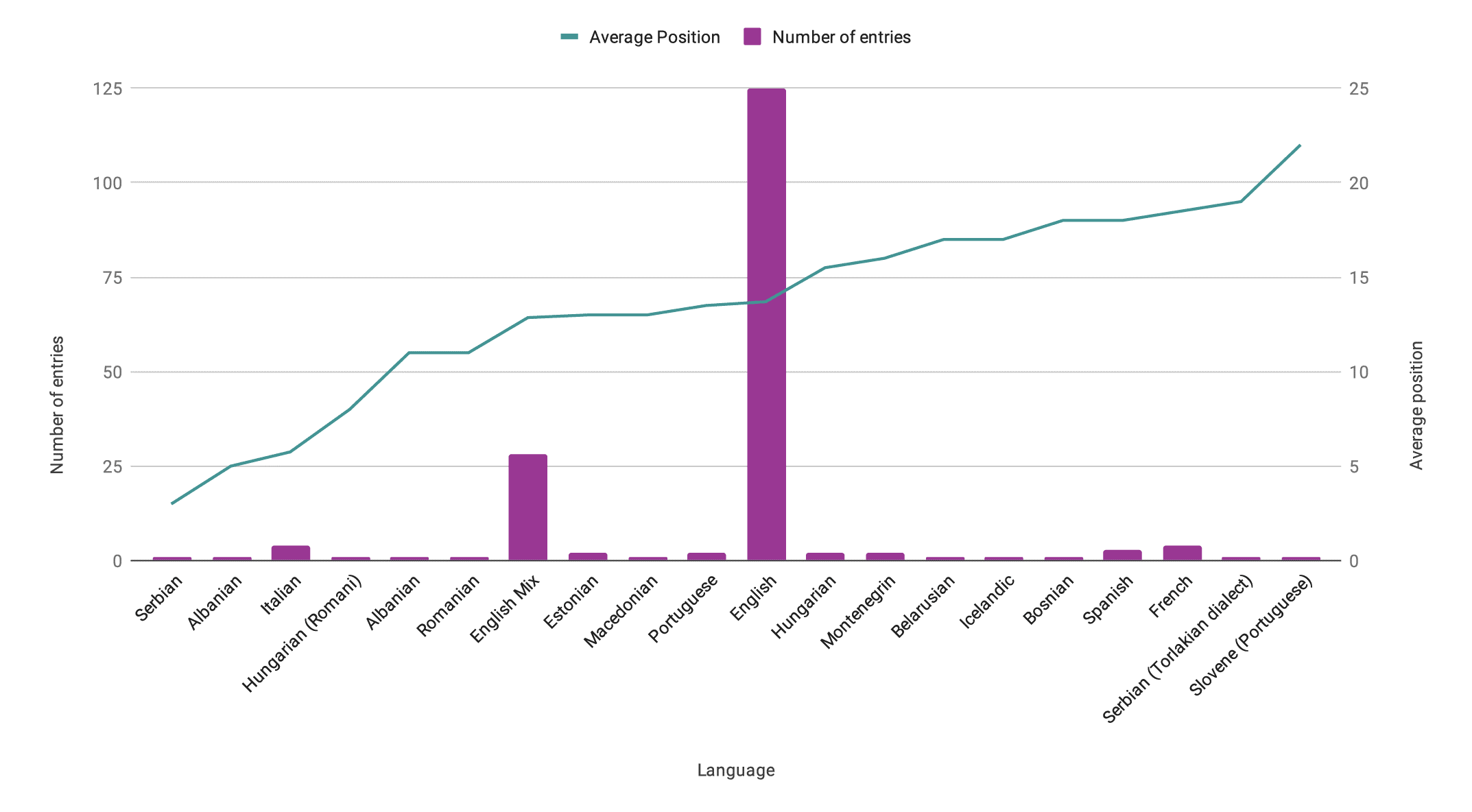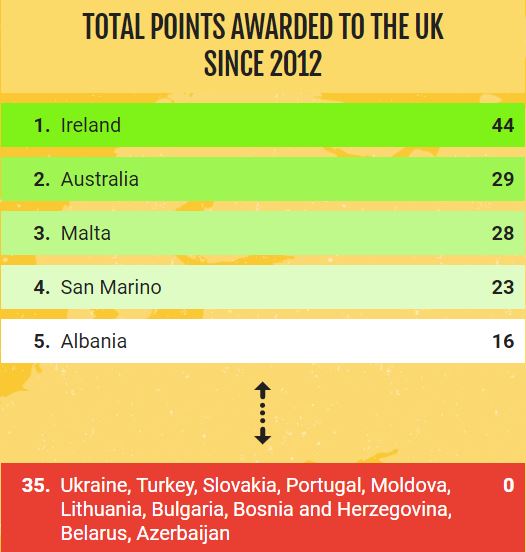Was Kate Miller-Heidke flying against the odds for a Eurovision win? [updated]
![Was Kate Miller-Heidke flying against the odds for a Eurovision win? [updated]](https://images.thebrag.com/cdn-cgi/image/fit=cover,width=1200,height=800,format=auto/https://images-r2-1.thebrag.com/tmn/uploads/Kate-Miller-Heidke.png)
Kate Miller-Heidke impressed enough Eurovision judges and viewers to sweep straight into the grand final.
But the odds are seemingly stacked against her, according to algorithms and Spotify figures.
However, the bookies have Australia at #2 with 12% after the popular Netherlands with 47%.
Update: As predicted, the Netherlands won with 492 points while Australia came 9th with 285 points
UK company Dance Direct has created an algorithm to predict the winner (and full order) alongside the elements that make the ‘perfect’ Eurovision song.
Analysing data from 2012 onwards, the research includes language, gender, act size, dance-ability and politics.
WHAT’S WORKING AGAINST AUSTRALIA?
To win at all costs, Kate would have to:
(1) Turn into a man. Being a man helps to win – male solo artists on average place 4 positions higher than female soloists.
(2) Form a band in the next few hours.
Women fare better in groups than solo whereas male acts see the reverse.
It’s more common to enter as a mixed gender group (33 entries since 2012), followed by all-male groups (29 entries since 2012), and all female (7 entries since 2012) groups. That said, all female groups score better, followed by mixed and all male groups.
(3) Wear a white overstated gown, because that’s what female winners sport traditionally.
If she did decide to become a man, as we have suggested, she’d need an understated look, with classic black suits as deemed as the most popular male outfit.
(4) Sing ‘Zero Gravity’ in an imaginary language as Belgian group Urban Trad did in 2003 to get the second spot.
Other than English and English-Native mix singing in a faux language hold the highest score.

(5) Sing ‘Zero Gravity’ in Serbian – which has historically scored higher than Italian.
(6) Hope like hell she receives points from Spain, The Netherlands, and Belgium – these countries are most likely to award their points to the eventual winner each year.
(7) Don’t rely much on the Poms.
A common observation about Eurovision is that certain countries vote according to allegiances, rather than the quality of the performance.
The research shows that the UK has a close ally in Ireland, which has awarded the UK the most points since 2012, followed by Australia and Malta.
However, the UK doesn’t reciprocate and instead gives most of its points jointly to Sweden and Bulgaria, followed by Lithuania and then Australia.

SO WHO’S GOING TO WIN?
The Netherlands is most likely to win Eurovision 2019.
According to Dance Direct data, based on the past winners and the factors that seem to shape the criteria indicated as the ‘perfect’ Eurovision, the Netherlands’ Duncan Lawrence is outlined as the favourite for Eurovision 2019 with his original song, ‘Arcade’ which fits most of the criteria.
WHO ELSE WILL BE IN THE FINAL RANKING?
According to Dance Direct predictions, the rest of the ranking is.
(2) Italy, Mahmood, ‘Soldi’
(3) Sweden, John Lundvik, ‘Too Late For Love’
(4) North Macedonia, Tamara Todevska, ‘Proud’
(5) Norway, KEiiNO, ‘Spirit In The Sky’
(6) Israel, Kobi Marimi, ‘Home’
(7) Switzerland, Luca Hanni, ‘She Got Me’
(8) Cyprus, Tamta, ‘Replay’
(9) Denmark, Leonora, ‘Love Is Forever’
(10) Azerbaijan, Chingiz, ‘Truth’
DO SPOTIFY STREAMS GIVE AN INDICATION?
Spotify released the Top 10 most-streamed songs from this year’s Eurovision contestants:
1. Italy – Mahmood, ‘Soldi’
2. Sweden – John Lundvik, ‘Too Late for Love’
3. Netherlands – Duncan Laurence, ‘Arcade’
4. France – Bilal Hassani, ‘Roi’
5. Spain – Miki Núñez, ‘La Venda’
6. Norway – Keiino, ‘Spirit In The Sky’
7. Switzerland – Luca Hänni, ‘She Got Me’
8. Cyprus – Tamta, ‘Replay’
9. Estonia – Victor Crone, ‘Storm’
10. Denmark – Leonora, ‘Love Is Forever’
The Eurovision grand final airs live this Sunday at 5am on SBS, with a prime-time repeat at 8.30pm.






























